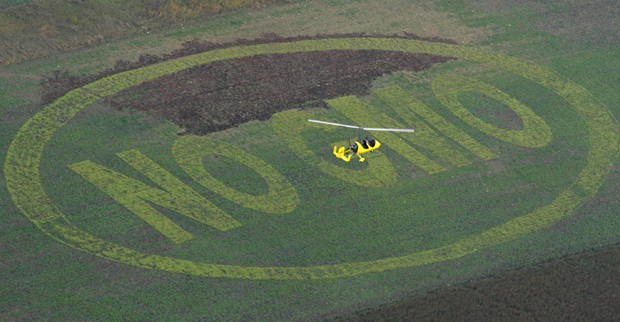– Tasmania Extends Ban on GM Crops Indefinitely (Sustainable Pulse, Jan 9, 2014):
In a victory for the GMO Free movement in Australia the Tasmanian Government announced Thursday that it has extended the state’s ban on genetically modified crops and animals indefinitely.
Tasmania, the only state in Australia that has a blanket ban on GM crops, has been GMO free since 2001, however the moratorium was set to end in November 2014.
Following a very clear consultation process with local farming and environmental groups, the Tasmanian government decided to announce Thursday that it would continue to protect Tasmania’s clean and green brand by extending the ban indefinitely.
Deputy Premier Bryan Green told ABC that making the ban indefinite will protect the state’s GMO-free brand.
Federal Senator Lin Thorp, who has led the push against GM in Tasmania and was a member of the state government that introduced the moratorium in 2001, said that Tasmania, as an island, can use its isolation and clean environment to “overcome the tyranny of distance and the difficulties of the size of our ventures” by producing GM-free food “that people are prepared to pay a premium for”.
The state’s agriculture industry bodies were also mostly united in their support for maintaining the moratorium. Tasmania’s honey growers even threatened to cease crop pollination services if the ban ended because GM contamination would have destroyed their lucrative European and Asian markets.
Most Tasmanian farmers have not taken an ideological position on GMOs. They have simply judged that GMO Free products give them a huge advantage, a view that is being supported by more and more farmers worldwide.
Tasmania’s Unique GMO policy:
- Prohibits use of gene technology in commercial agriculture, horticulture, forestry, fisheries, bioremediation and pets;
- Does not apply to gene technology use in contained research and medical or non-agricultural industrial use where there is no risk of release to the environment;
- Allows specific authorisation of some types of research if risks of escape of GM organisms to the environment is low enough;
- Prohibits import of viable GM organisms which could establish in the environment (eg GM canola seed);
- Does not prohibit import of non-viable materials derived from GMOs (eg feed containing GM soya bean meal);
- Continues the eradication program at former trial sites at which residual GM canola occurs; and,
- Supports continued Tasmanian participation in national GMO and food safety regulation systems.
